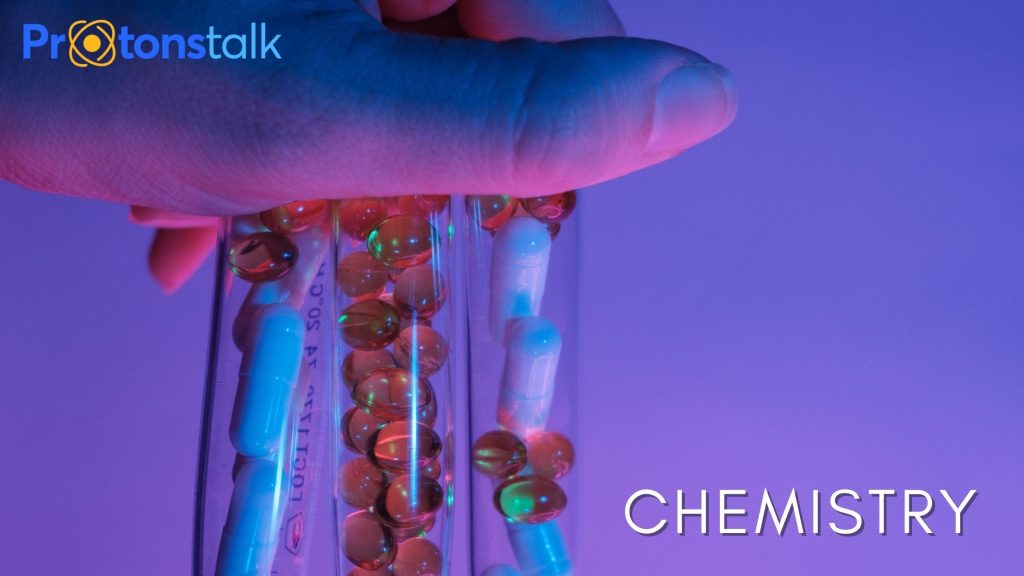
Chemistry is a topic that many IIT JEE candidates overlook because they consider it to be “relatively simple” in comparison to Mathematics and Physics. This, however, is not a good practice and may result in pupils losing their JEE rankings. To get a decent JEE score and rank, you must focus equally on all three courses.
This post will teach you how to deal with difficult topics in JEE Chemistry.
Index
Handling Tough Topics in Organic Chemistry
Study from the best book
Organic Chemistry has always misunderstood by students as it requires mugging up of reactions, and as a result, many despise the subject. However, it is not the case. Organic Chemistry (OC) is very logical and does not require mugging up. If you study the subject from a good book, you will begin to like the subject.
LG Wade is the best book according to me, on Organic Chemistry by Reading this book you will understand the beauty of chemistry and this will change your perspective towards this subject and you will fall in love with this subject.
Make a separate notebook containing all the reactions
Make a notepad where you can record all of the reactions you encounter in Organic Chemistry. Try to figure out why, how, and when each of these reactions occurred. When you notice a reaction, go through this notepad and try to remember how it works.
You’ll notice that, over time, you’ve become extremely familiar with Organic Chemistry reaction processes, and you’ll begin to use them.
Put enough efforts in studying named reactions
The importance of named reactions in Organic Chemistry cannot be overstated. Every year, JEE asks a lot of questions about identified reactions. “Friedel-Crafts reaction,” “Reimer-Tiemann reaction,” “Wurtz reaction,” “Cannizzaro reaction,” and so on are examples of named reactions. You should be able to recite these reactions off the top of your head.
While studying each of the named reactions, focus on parameters like the reactant, product, electrophile, nucleophile, catalyst, reaction exceptions, positive reaction conditions, negative reaction conditions, and reaction mechanism. problems asked on these topics in JEE.
Handling Tough Topics in Inorganic Chemistry
Study from good books
Inorganic chemistry is the branch of chemistry in which all processes mugged up. Although the mechanisms of some inorganic reactions comprehended, much of Inorganic Chemistry is memorization. It is critical to study from a good book because it provides clear explanations.
For JEE inorganic chemistry, OP Tandon’s Textbook of Inorganic Chemistry for Competitions (JEE Main & JEE Advanced) is a great book. It will assist you in better comprehending the subject.
Study important topics really well
There are certain topics in Inorganic Chemistry never leave by the JEE chemistry paper setters. Metallurgy, coordination compounds, and p-block elements are only a few of the topics. These issues should be well researched.
Solve all prior year’s questions on the same subject. This will give you an idea of the types of questions asked in JEE.
Try to link things to the periodic table
Analyze the trends (for example, salt solubility) and try to connect them to the periodic table. With the exception of a few instances, you will almost always find a direct relationship.
Trend analysis will also help you remember features of various elements and compounds, which will come in handy in later chapters. For example, if you’ve studied trend analysis and are familiar with salt solubility, you’ll have no issue remembering whether or not a particular salt is soluble while studying the Qualitative Analysis chapter.
Make a reactions notebook
Make an inorganic chemistry notebook in the same way you did for organic chemistry. In that notebook, jot down all of the significant reactions. Examine this notebook on a regular basis. Start revising from this notebook every day around three months before the exam.
In the same notebook, jot down any exceptions that need to be remembered. Inorganic Chemistry, remembering exceptions is just as crucial as remembering equations.
Use different highlighters for qualitative analysis
The most dreaded topic in JEE inorganic Chemistry is qualitative analysis. It’s tough to recall the hues of the compounds. It will be easier if you write the names of the compounds in the same colour as the colour of the compounds. You will develop a picture memory of the colours of compounds in this manner, making it easier to memorise them.
Handling Tough Topics in Physical Chemistry
Focus on concepts
Don’t try to mug up formulae. Try to understand each and everything logically. Physical Chemistry involves solving numericals and hence a clear understanding of all concepts logically is key to success in the exam.
Solve previous years’ JEE questions
Solving JEE questions help you get an idea about the type of questions asked and also helps you build confidence and your competency when you solve them.
To comprehend things, use the Mole Notion.
The molecule notion is a fundamental notion in physical chemistry. Its application, on the other hand, found in a variety of places. Everything should be thought of in terms of moles and equivalents for a crystal-clear grasp of topics like Chemical kinetics, Chemical equilibrium, Electrochemistry, and so on.
You learned how to deal with difficult problems in IIT JEE chemistry in this post.
Use these pointers to your advantage and do well in IIT JEE chemistry!
My best wishes is with you hope you score well in your IIT JEE Exam.
